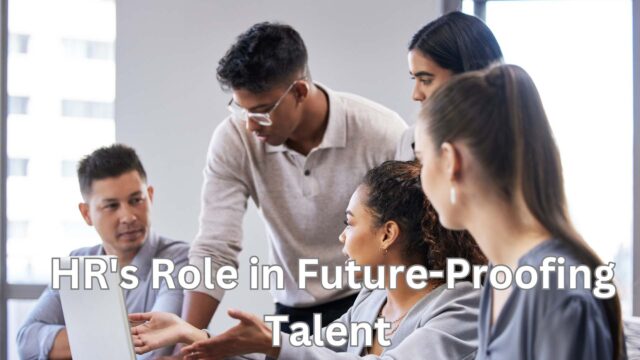The morning sun streams through windows of modern learning centers across the globe, where employees immerse themselves in artificial intelligence workshops and digital training sessions. What seemed unimaginable just five years ago has become as routine as morning meetings. This transformation captures a significant shift sweeping across organizations worldwide, as automation and artificial intelligence reshape the workplace landscape.
HR leaders now find themselves at the forefront of a critical mission: future-proofing their workforce through strategic upskilling initiatives. The stakes couldn’t be higher. The World Economic Forum’s latest projections suggest that by 2025, 85 million jobs may be displaced by the shift in labor division between humans and machines, while 97 million new roles may emerge. For HR professionals, this presents both a challenge and an unprecedented opportunity to reshape the future of work.
The question has shifted from whether to upskill to how to do it effectively and at scale. This sentiment echoes across industries as HR departments evolve from traditional training providers to architects of continuous learning ecosystems.
Building Tomorrow’s Workforce Today
The modern approach to upskilling transcends conventional training programs. Forward-thinking HR leaders are creating comprehensive development frameworks that blend technical expertise with essential human skills. This “Full-Spectrum Development Approach” has emerged as a leading strategy in workforce development.
Organizations aren’t just teaching people how to use new software or understand AI. They’re developing professionals who can think critically, adapt quickly, and lead through uncertainty. This holistic approach combines technical training in areas like data analytics and automation with intensive development of social intelligence and adaptive thinking skills.
This comprehensive strategy is gaining traction across industries. Leading healthcare organizations have transformed their entire learning infrastructure to support continuous skill development. The traditional annual training cycles have given way to personalized learning pathways that evolve with roles and industry needs.
The Strategic Implementation Challenge
Successfully implementing upskilling initiatives requires more than just good intentions. HR leaders must navigate budget constraints, overcome employee resistance, and demonstrate tangible returns on investment. The key lies in strategic planning and execution.
Innovative approaches in the financial services sector have shown promising results. Starting with comprehensive skills gap analysis, organizations identify critical skill clusters that deliver the most immediate impact. Learning pods – small groups of employees from different departments who progress through upskilling programs together – have proven particularly effective. This approach not only helps with knowledge retention but also creates internal support networks that sustain momentum throughout the learning journey.
Technology as an Enabler
The rise of sophisticated learning technologies has transformed how organizations approach upskilling. Virtual reality simulations, AI-powered learning platforms, and adaptive learning systems are becoming standard tools in the HR professional’s arsenal.
Leading tech companies now utilize VR headsets for employees to practice complex technical procedures in risk-free environments. The engagement levels and information retention rates have shown remarkable improvement when learners can literally step into their learning environment.
The Human Element
Despite the focus on technology, successful upskilling initiatives ultimately hinge on human connections. Mentorship programs, peer learning networks, and collaborative projects remain crucial components of effective skill development strategies.
Research consistently shows that technology facilitates learning, but human relationships drive transformation. The most successful programs maintain strong social components that help employees feel supported and motivated throughout their learning journey.
Looking Ahead
As we move deeper into the age of automation, the role of HR in workforce development will only grow in importance. The most successful organizations will be those that can create agile, adaptive learning environments that evolve with technological change.
Modern learning centers remain bustling with activity throughout the day, reflecting a fundamental truth about today’s rapidly evolving workplace: the desire to learn and grow has become not just a professional necessity but a source of competitive advantage. For HR leaders, the challenge is clear: create the infrastructure and culture that makes continuous learning not just possible, but inevitable.
As automation continues to reshape the workplace, HR’s role in upskilling talent has become more crucial than ever. The future belongs to organizations that can effectively blend human potential with technological advancement, creating workforces that are not just prepared for change, but eager to embrace it. Through strategic upskilling initiatives, HR departments are not just preparing for the future – they’re actively creating it, one skill at a time.










